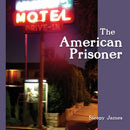- After The Fall
The loss of innocence and then, the impending shit storm. - Beer for Breakfast
A lowdown, dirty blues for those who’ve gone crazy, but haven’t completely lost their minds. - We're Both Been in Love Before
A love song for professionals. - Bad Case of Attitude
And of course, attitude is everything. - Let Me Down Easy
A plea for mercy on the battlefield of love. - Bobby and the Black-Eyed Susie
An ordinary couple of kids trying to do the right thing. - Chance to Say Goodbye
Move on. - The Cake Song
Cake is good. - War Jones 2003
An observation of the national mood in 2003 just prior to the invasion of Iraq. - The Wall
Prisoner love. - Paranoid Police State Blues
They want to keep us “safe.” - An American Lulaby
The juxtapositioning of two madonnas —one affuent, one not — and their respective places in the era of Pax Americana. - Overcast Sky
An old song. - The Hunter and the Game
Some things never change. - Keep On Rockin'
A plea for hope and determination.
The original seed for “The American Prisoner” was planted with the U.S. invasion of Iraq. Like many artists, Sleepy James became frustrated by the apathy of Americans, who watched George W. Bush plunge their country into a useless and unnecessary war, and then found themselves held hostage while their leader began to systematically tear apart the American Bill of Rights.
The concept expanded to an exploration of how we, as Americans, have become prisoner to our luxuries, our jobs, our credit ratings, our IPods, our SUVs and our other addictions . . .in whatever form, sanctioned or unsanctioned.
When he was growing up in New York in the 1960s, Sleepy listened to the wide variety of music that was then common on AM radio. Artists as varied as the Beatles, Bob Dylan, Peter, Paul & Mary, James Brown, Johnny Cash, Elvis Presley, Frank Sinatra, Smokey Robinson, Simon & Garfunkel, Lorne Greene and the Rolling Stones could all be heard on the same station's playlist.
“Although my main influences were the Beatles and Bob Dylan,” Sleepy says, “I listened to everything I could.”
After some 40 years of working as a musician — and taking time out to wear many other hats, as well — Sleepy James' songs reflect the passion, the range, and the freedom of a guy who's been around the block and seen a lot of changes. He released his first CD, "L.A. 'til Morning,'' in 2001 and his second, “The American Prisoner,” in 2007.
Two songs--"War Jones 2003" and “Paranoid Police State Blues”--attempt to apply humor to today’s political situation, while another “An American Lullaby” juxtaposes two mothers and children—one affuent, one not — and their respective places in the era of Pax Americana.
Other tunes on the CD deal with our more mundane, everyday dependencies: the bluesy "Beer for Breakfast," and the jazzy "We've Both Been in Love Before" and "Let Me Down Easy" offer a biting commentary on modern relationships, as do “Bobby and the Black-eyed Susie” and "Bad Case of Attitude," albeit with a country twang. The CD ends with "Keep On Rockin'," a world-weary Baby Boomer’s plea for perseverance.
Collectively, Sleepy James' songs represent his far-reaching musical roots and varied background, from playing in Long Island rock bands as a teenager, to sharing the stage at Los Angeles folk clubs and coffeehouses with Jackson Browne and Don Henley, to becoming a fixture at Southern California nightclubs during the '70 and '80s.
But at this stage in his career, Sleepy James has come full circle and he's back to the place where it all began — the music and the way it makes him feel.

